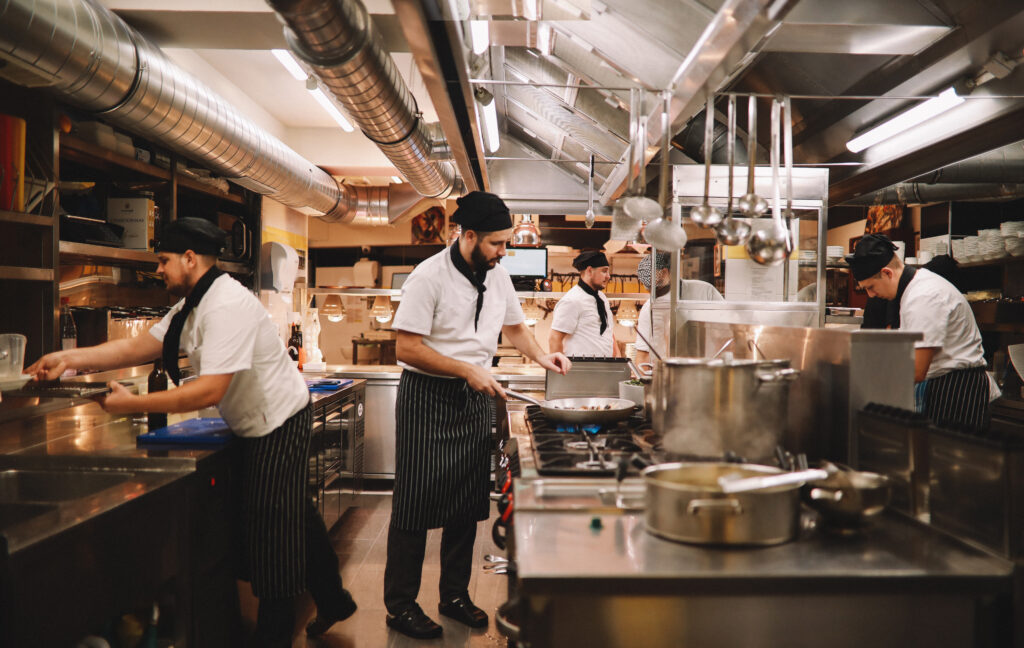When running a restaurant, saving money on energy is crucial. Restaurants use five to seven times more energy per square foot than other commercial buildings. They use the most energy on refrigeration, lighting, and cooling. To save money on energy and boost your bottom line, follow these tips.

Choose Natural Gas
Natural gas is more cost-effective, cost-stable, and outperforms both propane and electric energy. Natural gas is more affordable than electricity. Because there’s an abundant domestic supply, natural gas is expected to stay at a low cost for decades to come.
In the face of outages, natural gas access typically remains uninterrupted so your restaurant can remain open. Cooking with natural gas allows for better temperature control, faster cooking times, and better treatment of your cookware.
Select the Right Refrigerator
When buying new refrigerators, choose AA++ rated units. These refrigerators have the lowest running costs. Look for ENERGY STAR products, which are some of the most energy-efficient products on the market. Some of the kitchen equipment ENERGY STAR offers includes refrigerators and freezers, ice makers, dishwashers, ovens, griddles, fryers, and coffee makers.
Cleaning and servicing your refrigerator is also important. If your restaurant has a large, walk-in refrigeration system, get it serviced at least once a year. For standard refrigerators, clean cooling coils twice a year and replace door gaskets if the door’s seals are loose. You can check your refrigerator’s door seals by placing a dollar bill in between the doors and closing them. If the dollar bill slips out easily, it’s time for the seals to be replaced.
Analyze Your Kitchen Layout and Practices
Does your kitchen layout make sense? If the ice maker is next to the grill, oven, or fryer, the ice maker will have to work harder than it needs to, using more energy. Separate heating and cooling appliances to reduce wasted energy.
Always make sure to close your freezer and refrigerator doors. Leaving these doors open even a crack can lose significant amounts of energy. Take the time to do regular thermostat checks on your appliances, as the performance of your kitchen equipment changes over time. Thermostats and control systems can fail without you knowing it. By checking them regularly, you can prevent wasted energy.
Replace Lighting
Updating lighting is a great opportunity to save energy, as restaurant energy consumption averages around 13% for lighting. If your restaurant uses incandescent lighting, switch to LEDs. These lights use 90% less energy than traditional incandescent lighting, are less expensive, and last nearly 40 times longer. You can cut your restaurant’s wattage consumption by hundreds or even thousands, saving you money.
Additionally, consider installing dimmers. Daylight dimmers are sensors that dim lighting based on how much daylight is in your restaurant. This, combined with using windows to utilize natural lighting as much as possible, can help cut your energy usage significantly.
Take Control of Your Heating and Cooling
Heating and cooling are a major source of energy usage for any company. You can save on heating and cooling by adjusting your restaurant’s temperature. In the warm months, set your cooling system to 78 degrees Fahrenheit. In the cold months, set your heating system to 68 degrees Fahrenheit. You can save four to five percent per degree that you add or subtract. Installing a programmable thermostat can help cut energy costs in spaces that are unoccupied for any period.
Make sure to check and maintain your HVAC equipment every year. This ensures your system is working the way it should and no heat or cool air is escaping. Clogged air ducts, dirty air filters, and other parts not functioning correctly can significantly increase your energy costs.
By following these tips, you can reduce your energy consumption and costs and help put money back into your restaurant. For more energy-saving tips, download our Restaurant Manager’s Energy Guide.
Interested in learning more about saving on energy? Contact the experts at UGI Energy Services today.